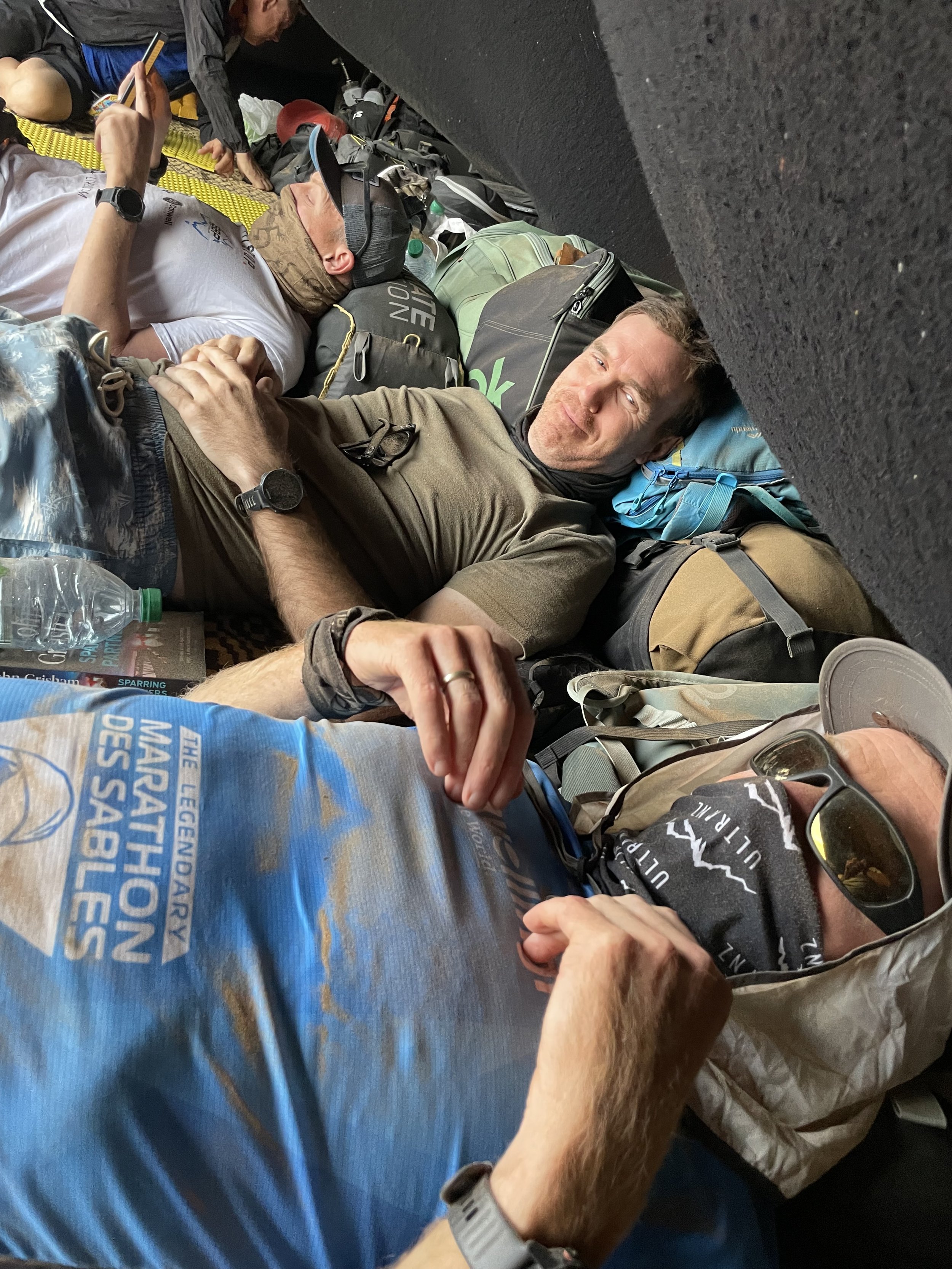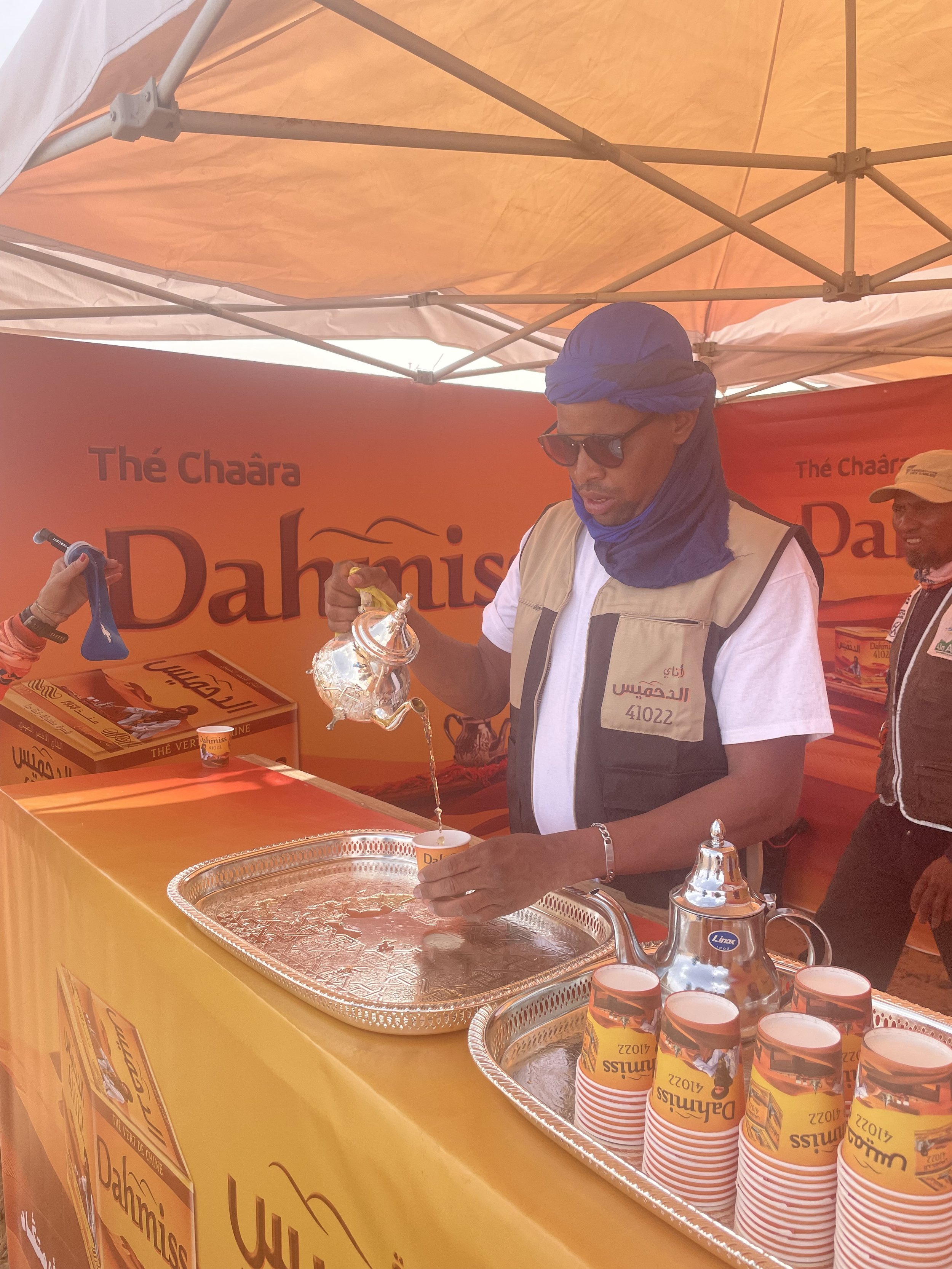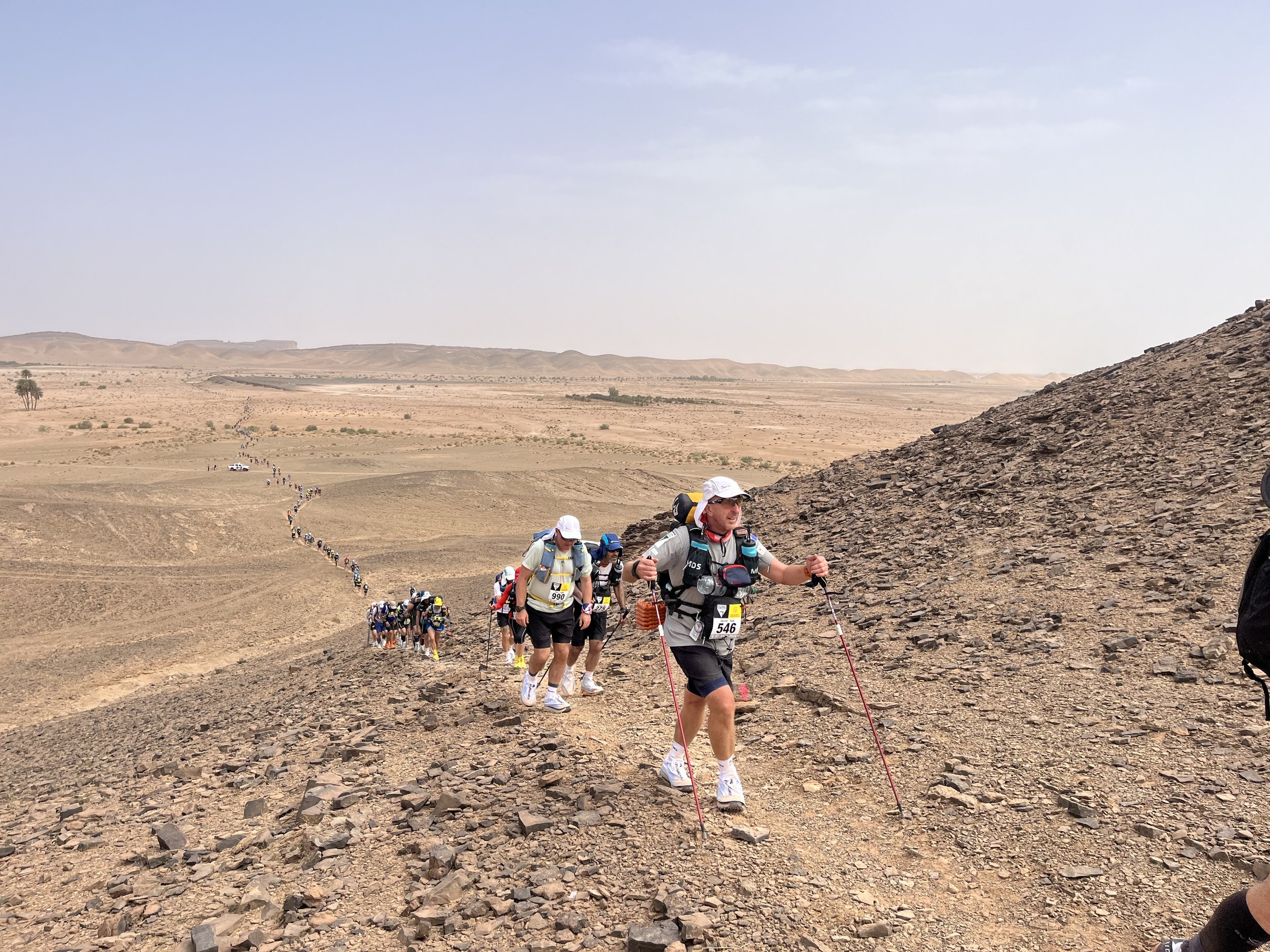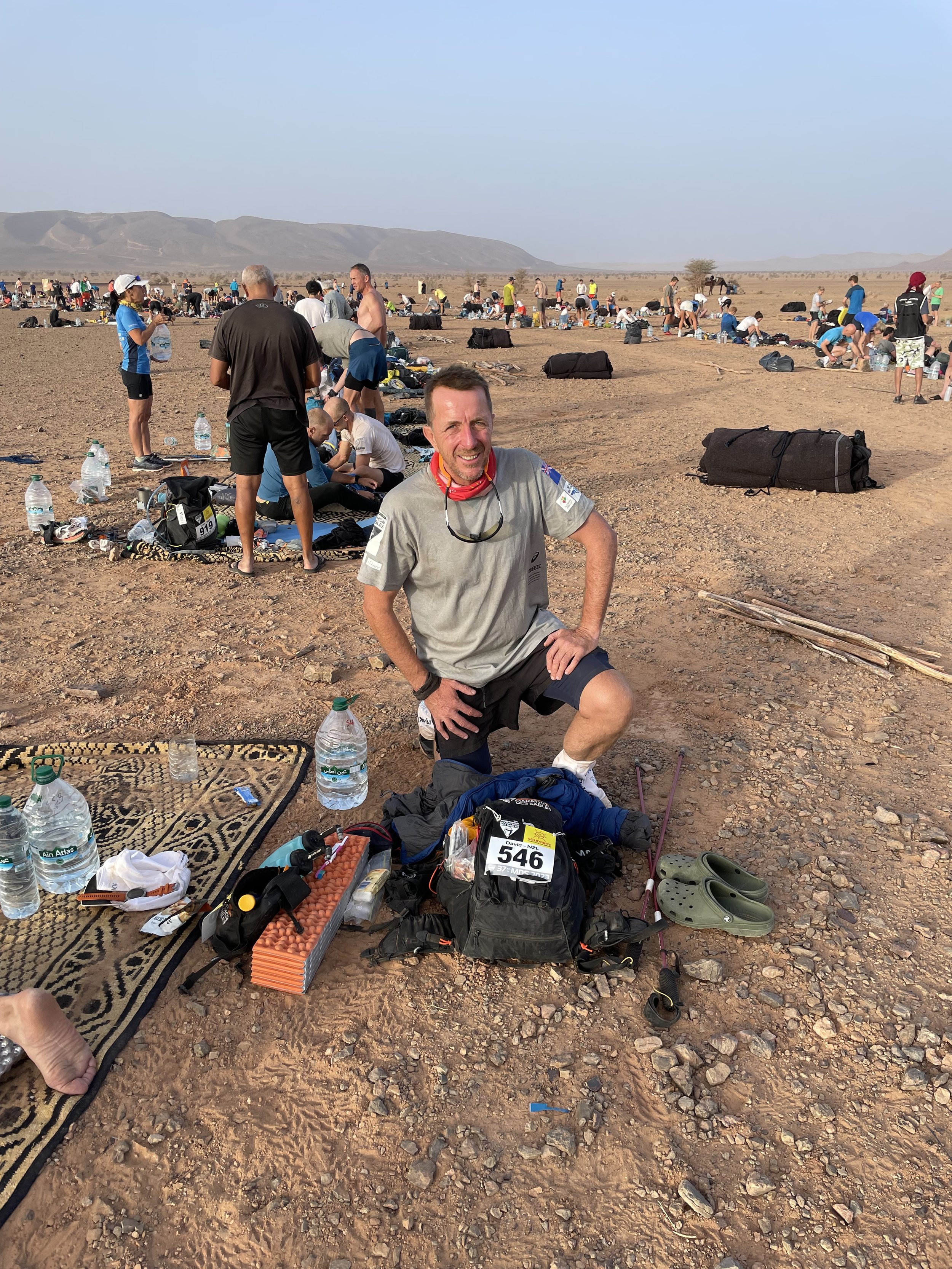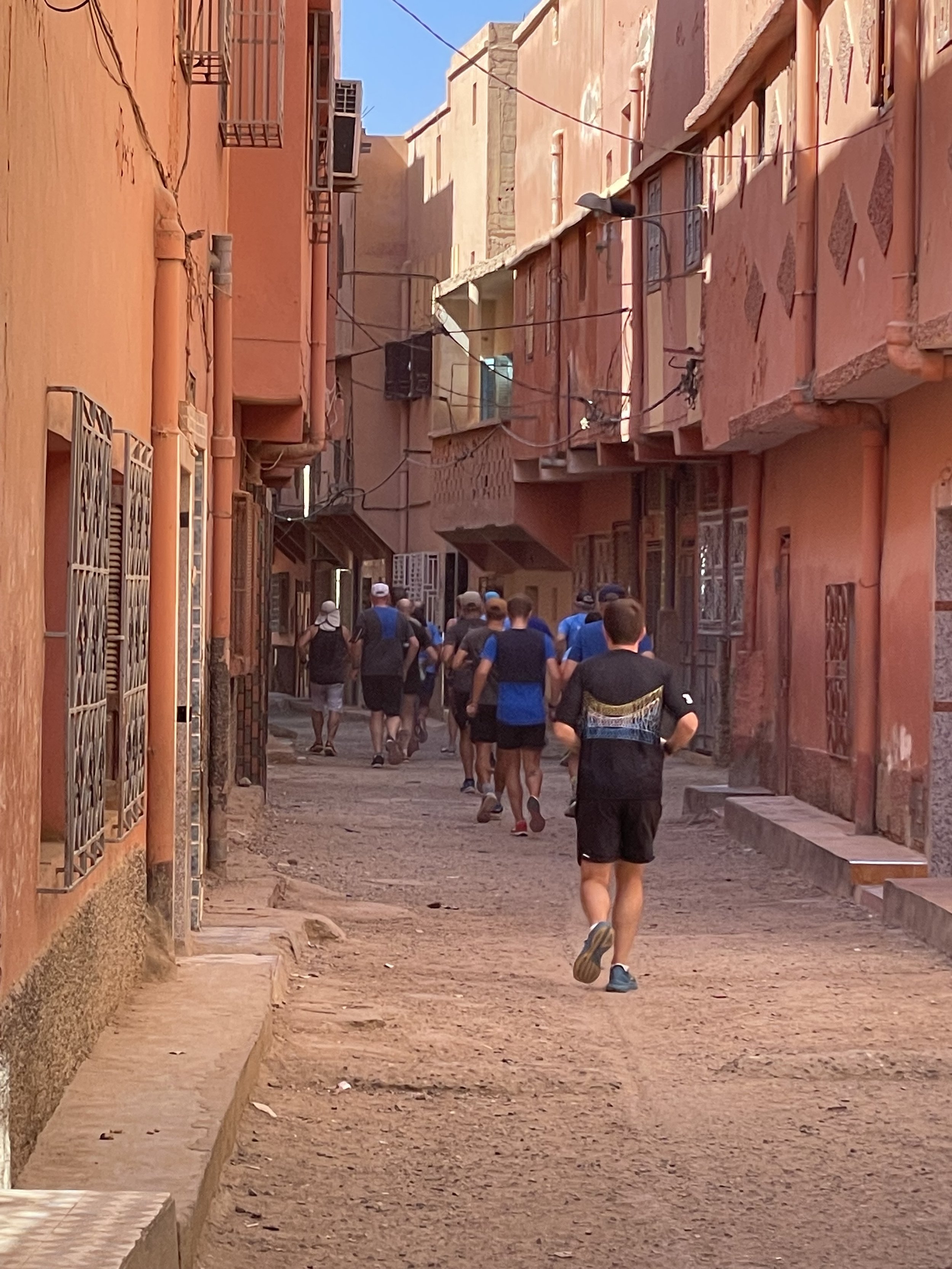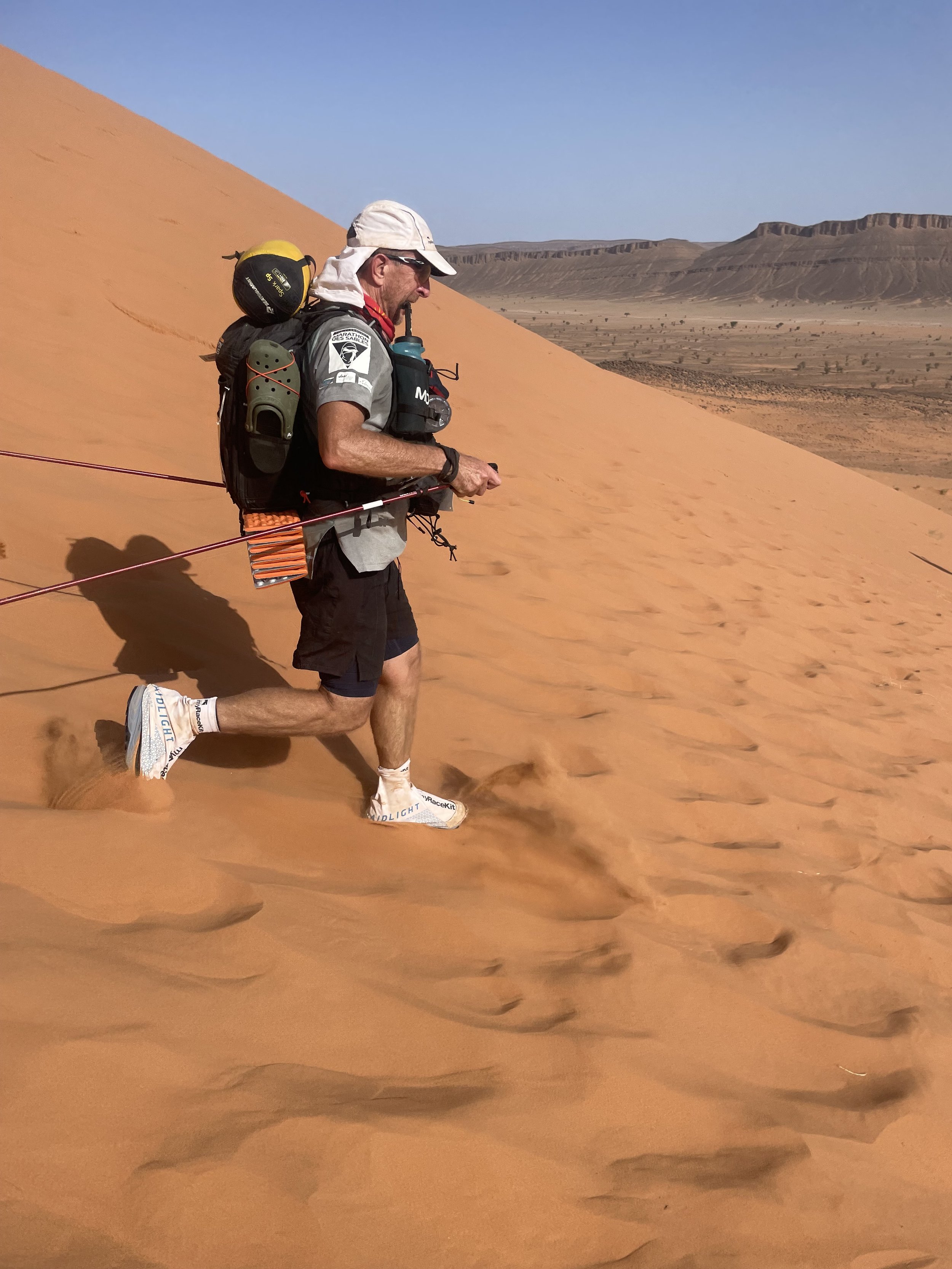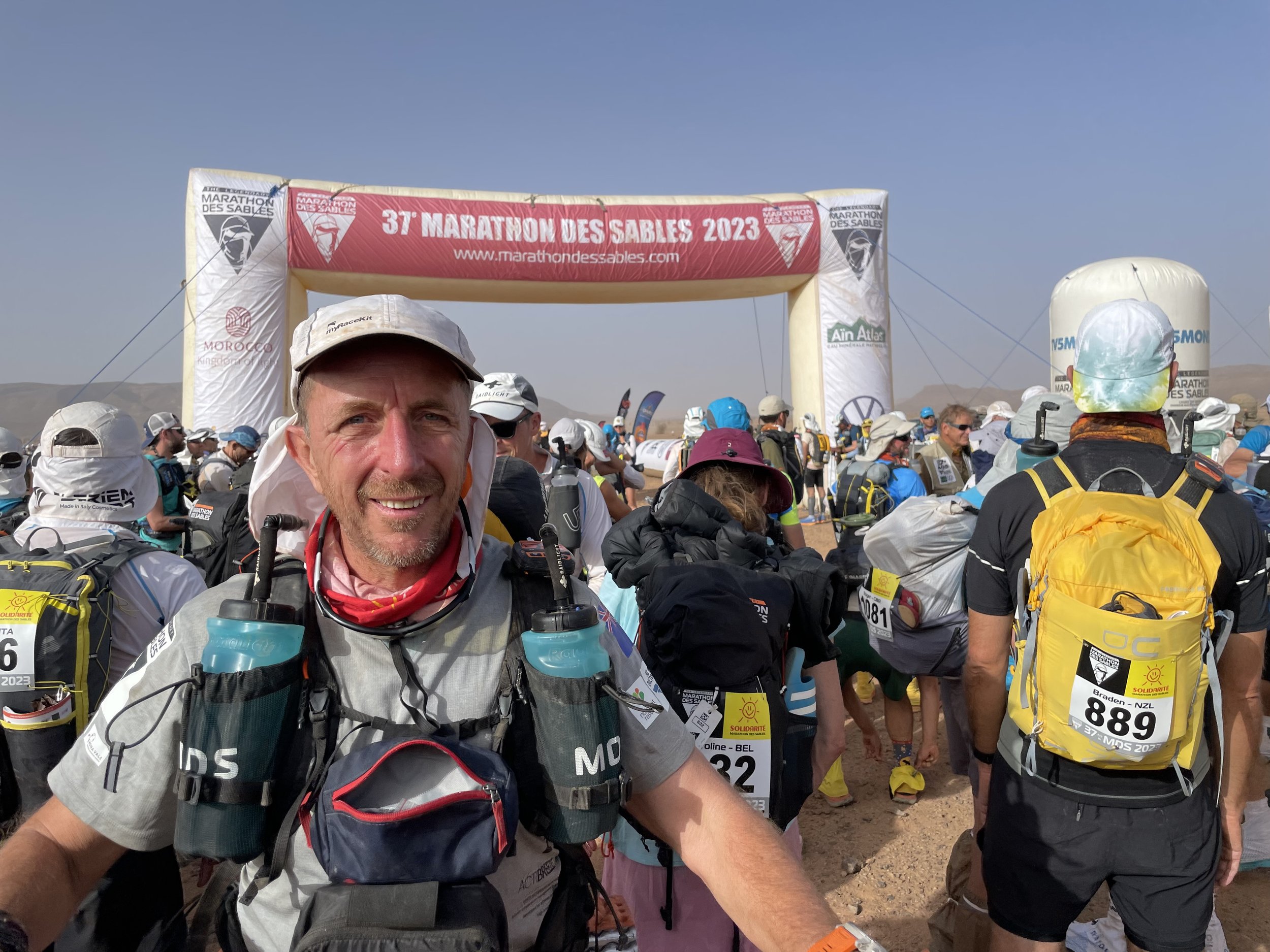Running In The Desert
David Cartwright running in the sand in ‘oven’ like heat.
When we meet Charles Upham Village Manager, David Cartwright, at his office the vibe is upbeat. He calls out a hello to a passing resident, has a quick chat with a staff member, remembers it’s someone’s birthday and pops to the café to get drinks (strictly no alc) for our interview
words: Pattie Pegler
images: Supplied by David Cartwright
He’s full of energy. But just days ago he returned from Morocco where he took part in the Marathon des Sables. It’s a 250-kilometre, one week run across the desert where runners carry their own food and sleeping equipment. Honestly, I wouldn’t have been surprised to find him asleep on his desk today.
But David has done plenty of extreme events. He’s done the Coast to Coast and marathons in Christchurch, New York, Honolulu, Queenstown, Rotorua and Auckland. He’s done the Bondi to Manly Ultra and the Old Ghost Road Ultra. He’s done New Zealand Ironman, Taupo Enduro – a 360km cycling event – and he’s stepped in the boxing ring for charity. But running 250 kilometers in the desert. Why?
“I like to push myself,” he replies. “I wanted to see if I could do it. And, I wanted to raise money for NZ Flying Doctors Service.” (He did, over $10,000.)
In April David travelled to Casablanca where he met up with other race competitors, including a 20-strong group of New Zealanders and Australians. Whilst the race is hugely challenging for participants it’s also a big logistics exercise for the organisers. An ‘admin day’ in the desert prior to the race made sure everyone’s insurance papers were checked along with health and fitness levels. Backpacks were weighed and had to include certain safety items like compasses and emergency beacons as well as sufficient food.
The race spans several days with different distances to be covered each day outlined in a ‘road book’ given to runners. At each stage runners had to make it to the next overnight point, where tents and medical facilities were set up by the logistics crew.
Nights were spent in desert tents and there was a ‘degree of sleep deprivation’ acknowledges David. Racing started early each day with a blast of Highway To Hell from AC/DC through loud speakers.
“I cannot describe what the heat was like,” says David. “It got up to 52 degrees and that’s like standing in front of an oven.” In fact the heat was so extreme that the daily start time was soon brought forward an hour to 7am.
To say it sounds challenging is an understatement. And by the third day, some 127 participants had left, badly affected by the desert, the effort, and the difficult living conditions in the bivouac tents. As well as the extraordinary heat.
On day two David started to develop a blister. If you’re thinking of a spot of sore skin on the heel – think again. This was a blister that covered the entire ball of his foot and took off nearly two layers of skin. He shows us some photos. They’re grim. Despite this he ran on day three covering nearly 35 kilometres. Then day four loomed, a 90-kilometre stage which he began but had to withdraw from at the first checkpoint.
Pulling out of the race did leave him deflated. “I went to some dark places,” he says. “I was disappointed with myself, but I am going back in 2025 and I am going to do it better.”
There are, he says, three key areas he believes he can improve on in 2025. Foot preparation is one –putting more thought into shoes, socks and conditioning the feet ahead of time. He also plans to minimize the weight of his pack. This time it weighed 10.8 kilos, which seems reasonable but there were many who travelled much lighter. “If you can’t eat it, don’t take it,” is the approach of many of the seasoned participants David says.
And finally, he thinks his time management could have been better – giving the example of the end of day two, where he had waited to see the doctor before eating. When he got back to the tent, many participants had eaten and were already going to sleep in preparation for the next day.
“I’ve got the fitness level. I’ve got the gear. I’ve got the muscle memory,” says David. “I am never going to be first. But I don’t care if I’m last. I just want to do it.”


